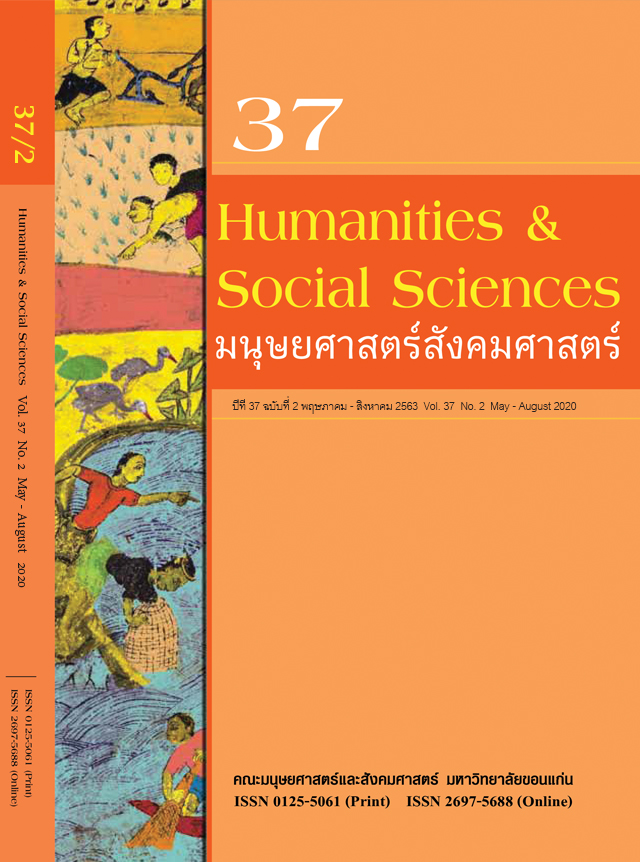การบริหารองค์การด้วยการประยุกต์ใช้แนวคิด Objective and Key Results
Organizational Management by Applying the Objective and Key Results Concept
Keywords:
Management, Organization, Objective, Key ResultsAbstract
This academic paper aims to 1) explain the meaning, concepts, characteristics of Objective and Key Results (OKRs); 2) compare the differences between KPI, OKRs and BSC, and 3) propose guidelines for use in organizations. By analyzing, classifying and comparing data with the concepts of public administration and organizational theory, it is found that 1) Objective and Key Results (OKRs) are management tools that encourage all personnel to participate in setting goals and searching for indicators for the benefit of organizational development. 2) Comparative results show that KPI focuses on measuring and explaining the results quantitatively and quality in order to increase productivity and competency, while OKRs have quarterly and continuous monitoring, focus on innovation and BSC as an evaluation to reflect the success of strategy. 3) Approach of Objective and Key Results (OKRs) implementation in the organization, it is found that there should be consultation and acceptance to bring the OKRs to be used in the whole organization and consider the organizational structure, organizational culture, organizational communication, defining organizational objectives, data collection and data storage responsible person.
Keywords: Management, Organization, Objective, Key Results
References
วิชญ์ศุทธ์ เมาระพงษ์. (2562). Digital Transformation ปรับเปลี่ยนองค์การไปพร้อมเทคโนโลยี. วารสาร TPA News. 274, 7-8.
วิษณุ เทพสินธพ. (2561). ปัจจัยที่มีอิทธิพลต่อการเป็นองค์การสมรรถนะสูงขององค์การบริหารส่วน ตำบลในเขตภาคเหนือตอนล่าง. วารสาร มจร นครน่านปริทรรศน์. 2(2), 13-32.
สุรชัย แก้วคูณ. (2561). การบริหารองค์การสมัยใหม่กับผู้บริหารสมัยใหม่. วารสารมหาจุฬาวิชาการ. 5(ฉบับพิเศษ), 197-208.
สัญญา เคณาภูมิ และเสาวลักษณ์ โกศลกิตติอัมพร. (2560). กรอบแนวคิดการศึกษาการวางแผน และ การบริหารแผน. วารสารวิชาการแพรวากาฬสินธุ์ มหาวิทยาลัยกาฬสินธุ์. 4(2), 389- 411.
สัญญา เคณาภูมิ. (2561). กระบวนทัศน์การจัดการภาครัฐแนวใหม่: ทิศทางการปฏิรูประบบราชการ. วารสารมหาวิทยาลัยราชภัฏมหาสารคาม. 12(2), 291-308.
อังคณา แซ่เจี่ย. (2561). การวัดผลการปฏิบัติงานหอสมุดแห่งมหาวิทยาลัยธรรมศาสตร์ด้วย Objective and Key Results (OKRs). วิทยานิพนธ์บริหารธุรกิจมหาบัณฑิตคณะ พาณิชยศาสตร์และการบัญชี มหาวิทยาลัยธรรมศาสตร์.
Greenberg, J. & Baron, R. (1993). Behavior in Organization.(4th ed.) Boston: Allyn and Bacon.
Kim, S. (2005). Individual-level factors and organizational performance in government organizations. Journal of Public Administration and Theory. 15(2), 245-261.
Wodtke, C. (2016). Introduction to OKRs. CA: O’Reilly Media, Inc.



